News
5 sperm conditions that cause infertility in men
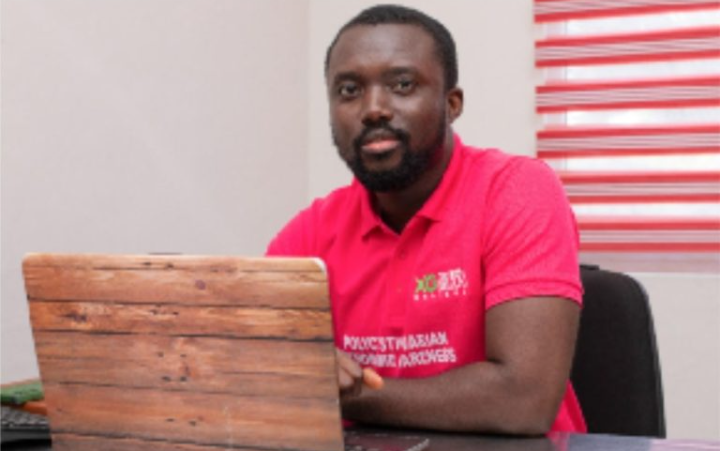
By Kayode Sanni-Arewa
Whenever couples face infertility, it is widely assumed to be the woman’s fault, however, a medical doctor, Dr. Samuel Gyedu Owusu, has made it clear that medical research has shown that both males and females are responsible for 45%-45% of infertility cases.
He told myjoyonline.com in a recent interview that while women’s fertility depends on adverse conditions in four main areas: fallopian tube, uterus (womb), ovaries, and hormones, while male infertility has do with the condition of the sperm.
The five conditions that can cause infertility in men, he listed, are Oligospermia, Teratospermia, Astheneszospermia, Aspermia, and Azoospermia.
Dr. Owusu added that low sperm count affects a man’s ability to get a woman pregnant and ultimately Intrauterine Insemination (IUI)may be required to improve a woman’s chances of conceiving
“When this happens, it means most of the sperm are dead. If something is dead, how do you resurrect them to work again? The best that can be done is lifestyle management and some medications to support it. Ultimately, IUI is required for the woman to get pregnant with the man’s most effective sperm,” he noted.
Dr. Owusu also explained that each sperm has a head, middle, and neck, however, in men with teratospermia, some sperms do not have a head, no tail, and no middle, making them appear deformed and abnormal.
“Other sperms come with two heads. This often results in just a few normal sperm in the semen that may not be up to the amount of sperm count needed to impregnate a woman. Deformed or abnormal sperm cannot fertilise an egg,” he added.
He explained that astheneszospermia condition has to do with sperm motility.
After ejaculation, sperms are supposed to swim in one line toward the egg in the fallopian tube.
However, in men with astheneszospermia, he said the sperm either cannot swim, or they swim in various directions with some even flowing back out of the vagina, instead of advancing toward the fallopian tube.
According to him, when this happens, just a few sperm or none at all may swim toward the egg, therefore, fertilisation is not possible.
With aspermia, he said it is often referred to as dry orgasm. In this condition, a man may attain orgasm and ejaculate but with no fluid or semen coming out.
He outlined one of the causes of aspermia is retrograde ejaculation which happens when, instead of coming out from the penis, the semen rather goes into the bladder.
In azoospermia, Dr. Owusu said there is a complete lack or zero sperm available in the semen, so when a man reaches orgasm and ejaculates alright with enough semen but not even a single sperm is available in the semen.
Dr. Gyedu Owusu pointed out that adverse sperm conditions can be caused by dietary issues, the use of certain medications, and living in industrial areas where there is release of harmful chemicals.
“For instance, when you take cancer treatment, due to the toxic nature of the medications used in the chemotherapy, sperm may be lost, the same as it is for women and their eggs. And for those living in industry zones, inhalation of chemicals over a long period of time can affect their sperm quality,” he said.
He added that men with a history of mumps are at risk of being infertile because the virus that causes mumps attacks sperm and affects it negatively, same as testicular infection and testicular cancer.
Dr. Owusu advised men to avoid wearing tight clothes below the waist and added that exposing the testicles to heat can all affect sperm poorly.
He also urged men to make it a responsibility to visit the hospital with their wives when faced with issues of infertility.
“Men should avail themselves for semen analyses. Sometimes, they sit back and watch only the women go because they assume they are fine. But that is not the case. Most of the time, the women come, you examine them, and they are fine, but the men won’t come. To defeat infertility, both partners should be examined together,” he said.
News
Just in: PDP can never die over gale of defection -Hon Teejay Yusuf insists
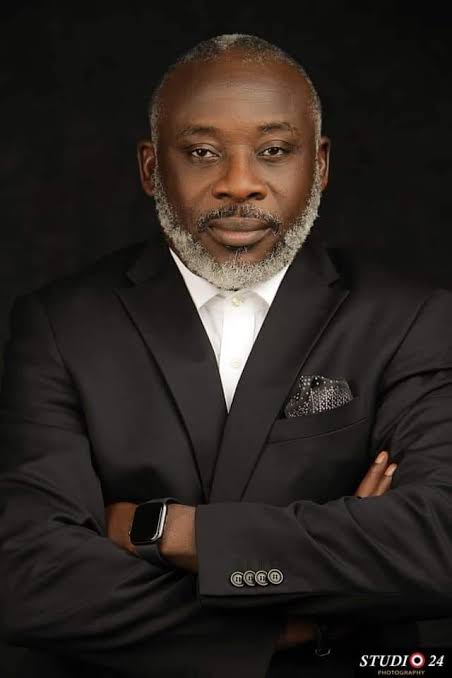
… PDP is going into extinction-Awwal
Ex-House of Representatives member, Hon Teejay Yusuf has insisted that the Peoples Democratic Party, PDP can never go into extinction even with one serving governor.
Recall that Governor of Delta State, Hon Sheriff Oberovwori and his immediate past principal and running mate to PDP’s flag bearer, Senator Ifeanyi Okowa defected to the ruling party, All Progressives Congress APC on Wednesday.
Teejay Yusuf, a vibrant and never say die three-term lawmaker while appearing on Channels tv on Thursday morning did not mince words when he declared that the PDP will bounce back soon.
Countering this position, an APC chieftain, Hassan Awwal said the PDP was going into extinction and by 2027 may not have more than one governor.
Teejay Yusuf also rubbished this position declaring that with even just one governor, the PDP will bounce back into the mainstream.
Giving instances of parties like CPC, ACN, APGA and others that had one governor but never died.
Details shortly….
News
Court orders 54 banks to return N9.3bn stolen by hackers

Justice Deinde Dipeolu of the Federal High Court in Lagos has ordered 54 banks to immediately return a total of N9,329,322,870 fraudulently transferred by hackers from an unnamed old generation bank.
The judgment, delivered on April 15, 2025, follows an ex parte motion filed in suit number FHC/L/CS/629/2025.
The court directed the financial institutions to place a Post No Debit restriction on all accounts that received the stolen funds and to begin the immediate return of all available funds to the originating bank.
The plaintiff bank reported that on March 23, 2025, a breach in its core banking system resulted in unauthorised debits from multiple customer accounts.
The stolen funds—amounting to over N9.3bn—were then dispersed across accounts in 54 financial institutions.
Upon detection of the incident, the bank said it promptly alerted the institutions involved and began tracking the disbursements.
The investigation revealed that the funds were transferred in multiple tranches from the bank into primary accounts and subsequently rerouted to other accounts held by secondary and tertiary beneficiaries.
Justice Dipeolu ruled that the affected banks must provide details of the implicated accounts, including balances and amounts already transferred.
The judge further ordered the immediate return of all recoverable funds to the plaintiff bank.
The financial institutions are also to share comprehensive customer data related to the transactions, including names and destination accounts.
Restrictions are to be maintained on all accounts that received any portion of the funds until full recovery is made, limited to the amount each received.
The judge clarified that the ruling applies strictly to erroneously transferred funds and does not infringe on other customer deposits.
“For the avoidance of doubt and for clarity, the order is only in respect of funds erroneously transferred and sums salvaged,” the ruling emphasised.
Justice Dipeolu concluded that the stolen funds “belong to the plaintiff and not the customers of the respondent banks,” affirming the court’s authority to direct full restitution.
News
US indicts Nigerian for $690k scam, false citizenship claim

A Nigerian-born United States citizen, Oladapo Fadugba, risks 27 years imprisonment over his alleged involvement in a $690,000 wire fraud scheme and making false declarations to obtain US citizenship.
PUNCH Metro learnt this in a statement by the US Attorney for the District of Florida, Gregory Kehoe, obtained on Wednesday.
According to Kehoe, Fadugba was indicted for multiple charges, including wire fraud, aggravated identity theft, and making false statements during his naturalisation process.
According to Kehoe, between October 2020 and July 2023, the suspect allegedly diverted $690,000 in funds belonging to the US Department of Veterans Affairs, which was meant for reimbursement to a major local healthcare provider.
It was further alleged that Fadugba used another person’s identity to facilitate the transfers into various bank accounts under his control.
The statement read, “According to the indictment, beginning on October 30, 2020, and ending no later than July 11, 2023, Fadugba had more than $690,000 of Department of Veterans Affairs funds, intended for reimbursement to a large local healthcare provider, transferred to his personal bank accounts.
“Fadugba then wrote cheques to himself or to businesses associated with him, which were subsequently transferred to other bank accounts under his control. It is alleged that he used the identification of another individual to carry out these transfers.”
In addition, Fadugba is accused of lying under oath during his US naturalisation proceedings by falsely stating that he had never committed a crime for which he had not been arrested.
Kehoe stated that, if the suspect was convicted on all counts, he risked a maximum sentence of 27 years in the US federal prison and the forfeiture of $400,000, representing proceeds from the alleged crimes.
“The indictment further alleges that Fadugba, a naturalised US citizen from Nigeria, made a false statement under oath during his naturalisation proceedings by claiming he had not committed any offence or crime for which he had not been arrested.
“If convicted on all charges, Fadugba faces up to 27 years in federal prison. The indictment also includes a notice that the United States is seeking a forfeiture order of $400,000, which reflects the approximate proceeds of the criminal conduct charged,” the statement added.
Kehoe concluded by noting that “an indictment is merely a formal accusation of criminal conduct, and every defendant is presumed innocent unless and until proven guilty.”
PUNCH Metro reported on April 12 that a 24-year-old Nigerian man, Mercy Ojedeji, pleaded guilty to charges of wire fraud and unlawful use of fraudulent immigration documents in the United States.
According to a statement released by the U.S. Attorney’s Office for the Eastern District of Missouri, the plea was entered in a US District Court in St. Louis, Missouri.
Ojedeji had admitted to fraudulently securing a student visa and gaining admission into the University of Missouri’s chemistry PhD program in Fall 2023.
He acknowledged using falsified academic transcripts, recommendation letters, a fake resume, and a fabricated English language proficiency report to obtain the visa.
Credit: PUNCH
-
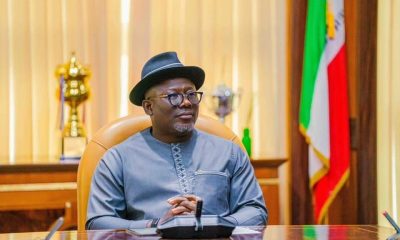
 News21 hours ago
News21 hours agoBREAKING! Gov Oborevwori finally dumps PDP
-

 News18 hours ago
News18 hours agoDelta to transform into complete APC state as 25 PDP Local Government Chairmen set to defect
-

 News24 hours ago
News24 hours ago18 Africans among cardinals to elect new Pope
-

 News23 hours ago
News23 hours agoLagos school owner nabbed for concealing r3pe of eleven girls by teacher
-

 News23 hours ago
News23 hours agoPilgrims Arrive As Lying In State Begins for Pope Francis
-
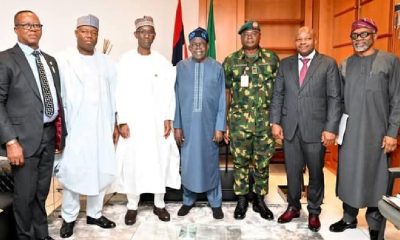
 News7 hours ago
News7 hours agoINSECURITY! Enough is enough, Tinubu tells security chiefs, NSA
-

 News7 hours ago
News7 hours agoJust in: Air Peace suspends all scheduled flights nationwide
-
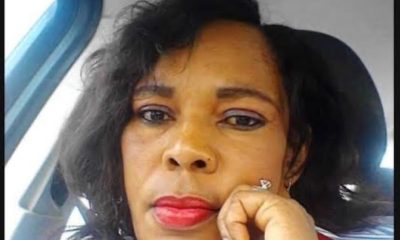
 News18 hours ago
News18 hours agoMoji Danisa to Be Honoured by NUJ FCT for Her Impact in Tabloid Journalism






